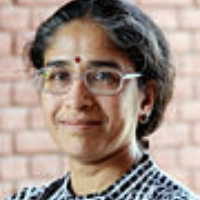Assassination is the extreme form of censorship, said George Bernard Shaw. Daniel Defoe, in his tongue-in-cheek proposal for the best and shortest way to deal with dissenters, exhorted the authorities to “crucify the thieves”. The jokes seem to have become terrifyingly real and unfortunately seem to be the order of the day when dealing with dissent. It is even more unfortunate that this desire to silence dissenting voices is not confined to totalitarian despotic regimes but has become a regular feature of democratic systems as well.
Dissenters are a nuisance and have to be made to shut up like the child who blurted out the truth about the emperor’s nakedness. The problem is how they are made to shut up. There is admittedly no civilized way in which a dissenter can be silenced or coerced into silence—Nazi Germany or Stalinist Russia can provide proof of that. But the Indian subcontinent does not have a history of brutal suppression of unwelcome thoughts in our literature or philosophy, despite the visible presence of dissenters. After all, had it not been for fundamental difference of opinion with Vedic religion, we would not have had a Gautama Buddha. The system, however, had space for its dissenters, its Ajivikas and its Charvakas, the sadhus, fakirs and avadhutas who spurned the well-trodden paths of religious thought, philosophy or literature.
It is a bitter irony of history that the same territory should turn into killing fields for people who express lesser degrees of dissent. Perumal Murugan’s silence was self-imposed when he was forced to publicly declare his suicide as a writer, making it possible for the court later to ‘resurrect’ him. Kalburgi, Pansare and Dabholkar were not so fortunate because their silences were bought at the cost of their lives. The latest victim of this form of brutal suppression is Gauri Lankesh. The perpetrators choose the ‘shortest way’ which is also easier than engaging in an intellectual debate with them, and assume that they have succeeded in silencing the ‘victims’ forever.
However, there is a problem with this form of silencing the dissenter, a problem which the ‘silencer’ or the censor fails to recognize. It is that the more you try to stamp it out, the more vigorously it bounces back. As Milton, that champion defender of free speech has pointed out, such dissent or “a forbidden writing is thought to be a certain spark of truth that flies up in the faces of them who seek to tread it out”. This seems to be just fancy rhetoric but facts prove otherwise. All of Nazi power with its bonfires of books on Kristalnacht or the gulags of Stalin could not muffle the voices of Thomas Mann, Bertolt Brecht, Mandelstam or Akhmatova. Why then would bullets silence the chain of heterodox thought set in motion by dissenters like Gauri Lankesh? Heterodox dissent has a tendency to be remain undefeated despite being destroyed – this has been the foundation of our democracy, and will be.
DISCLAIMER : The views and opinions expressed in this article are those of the authors and do not necessarily reflect the official policy of the GLF Circle.




Well said. Alas the goons and their leaders would care less and go after the next targeted dissentor with same ferocity. The gun silences thousands of voices without even hitting them with a bullet. Yet a few lamps are enough to remove darkness and must light on